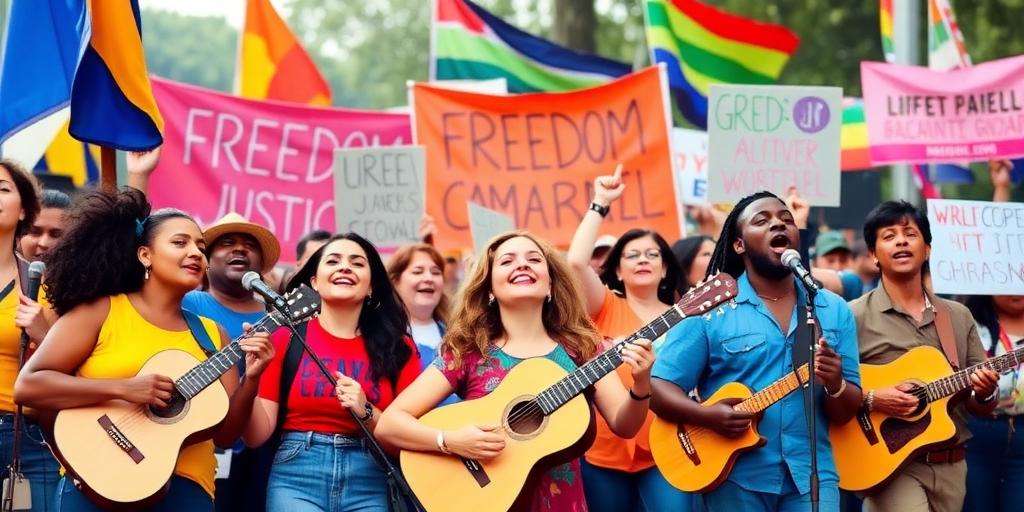Music has consistently played a pivotal role in social movements throughout history. Serving as a powerful tool for communication, mobilization, and emotional expression, music transcends cultural and linguistic barriers, uniting individuals under shared causes. This exploration delves into the multifaceted functions of music within social movements, examining its historical significance and contemporary relevance.
Historical Context
From the spirituals sung during the Civil Rights Movement to the protest songs of the Vietnam War era, music has been instrumental in voicing dissent and fostering solidarity. "We Shall Overcome," for instance, became an anthem of the Civil Rights Movement, encapsulating the struggle for equality and justice. Similarly, artists like Bob Dylan and Joan Baez used their music to critique the Vietnam War, influencing public opinion and galvanizing anti-war sentiment.
Functions of Music in Social Movements
- Communication: Music simplifies complex messages, making them accessible and memorable. Slogans and ideals are often embedded in song lyrics, facilitating their spread among participants and the broader public.
- Mobilization: Rhythmic and emotionally charged music can inspire collective action. Anthems and rallying songs energize protestors, creating a sense of unity and purpose.
- Emotional Expression: Music provides an outlet for expressing grief, anger, hope, and resilience. It allows individuals to connect on an emotional level, fostering empathy and mutual support.
- Identity Formation: Shared musical experiences contribute to the formation of collective identity. Songs that reflect the values and aspirations of a movement reinforce group cohesion and solidarity.
Contemporary Relevance
In the digital age, music continues to be a vital component of social movements. Online platforms enable artists and activists to disseminate their messages globally, reaching diverse audiences and amplifying their impact. The use of music in movements such as Black Lives Matter and the Arab Spring demonstrates its enduring power to inspire change.
Challenges and Considerations
While music can be a catalyst for social change, it is essential to acknowledge potential challenges. The commercialization of protest music, for example, can dilute its message and co-opt its original intent. Additionally, the appropriation of musical styles from marginalized communities raises ethical concerns that must be addressed.
Conclusion
Music remains an indispensable element of social movements, serving as a conduit for communication, mobilization, emotional expression, and identity formation. Its historical and contemporary significance underscores its capacity to inspire collective action and contribute to meaningful social transformation. As movements evolve, the role of music will continue to adapt, reflecting the changing dynamics of social and political landscapes.









